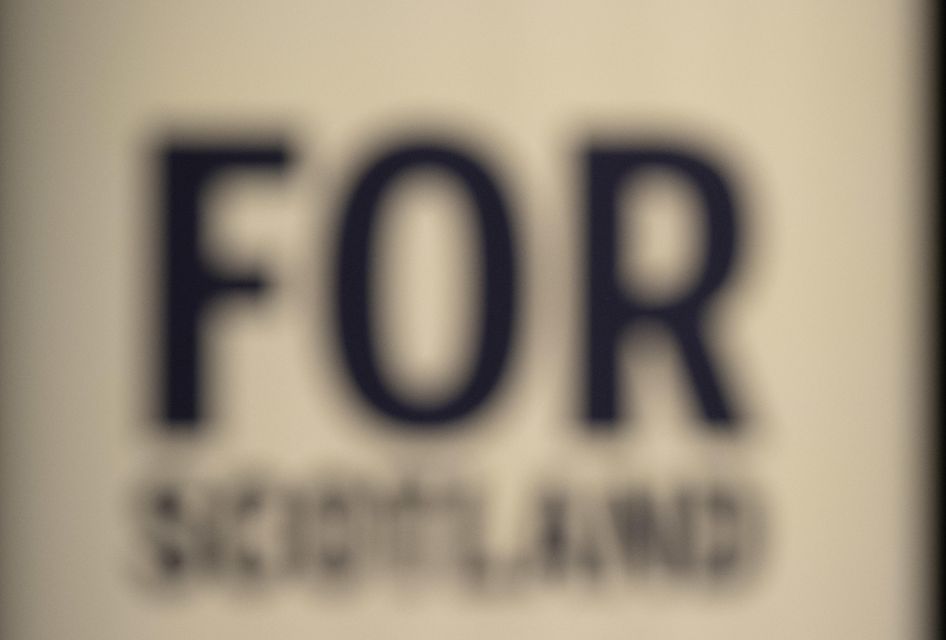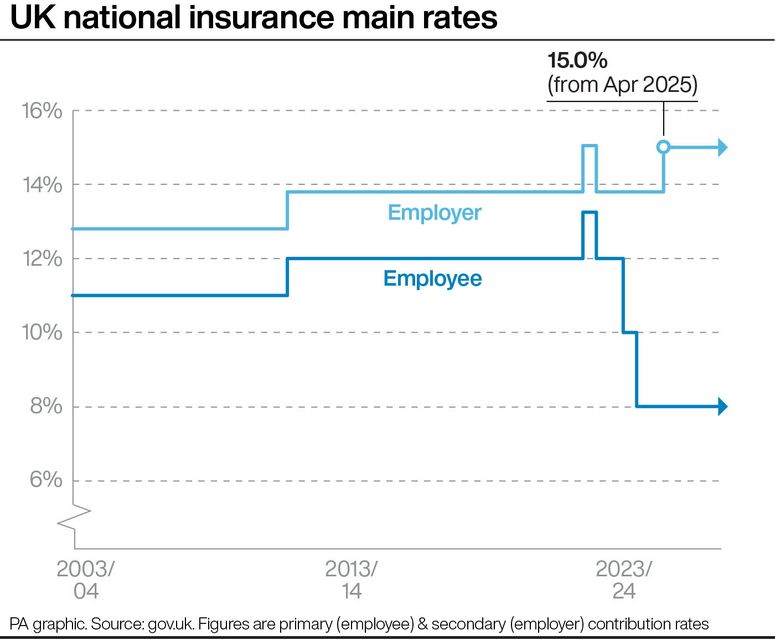The Scottish Government will receive the largest real-terms funding settlement in the history of devolution, Chancellor Rachel Reeves said as she challenged SNP ministers to use the cash “effectively” to improve public services.
The Scottish Government is now in line to receive £47.7 billion in 2025-26 – including £3.4 billion due as a result of decisions made by Ms Reeves on Wednesday in what was the first Labour Budget since 2010.
Calls from First Minister John Swinney for the two-child cap on some benefits to be scrapped and for the UK Government to reverse its decision to means test the winter fuel payment were not heeded by the Chancellor.
But prior to Ms Reeve’s statement, he had also called on the UK Government to “significantly enhance” funding for Scotland.
Ms Reeves said her Budget – the first ever by a female Chancellor – will provide the devolved governments with “the largest real-terms funding settlements since devolution”.
She said is “funding which must now be used effectively in Scotland to deliver the public services that the people of Scotland deserve”.
Her comments came as she insisted the tax and spending proposals she outlined means there will be “no return to austerity”.
The Chancellor announced £40 billion a year in extra taxes as she increased Government borrowing and spending to “rebuild Britain”.
But she told MPs the measures are necessary to address the “black hole” in public finances left by the Tories, while pumping billions into schools and hospitals.
We need your consent to load this Social Media content. We use a number of different Social Media outlets to manage extra content that can set cookies on your device and collect data about your activity.
Ms Reeves also promised cash for city and growth deals, including one in Argyll and Bute where the Scottish and UK governments will each contribute £25 million to the programme, cash for 11 green hydrogen projects in the UK, including in East Renfrewshire, which she said will be “amongst the first commercial scale projects anywhere in the world”.
Chief Secretary to the Treasury Darren Jones said the Budget means the Scottish Government “is receiving 20% more per person than equivalent spending across the rest of the UK”.
He added: “This will give the Scottish Government the certainty over public finances to be able to invest, reform and modernise public services and to boost investment and deliver growth in Scotland.”
Scottish Secretary Ian Murray hailed it as an “historic Budget for Scotland that chooses investment over decline”.
He said an increase in the minimum wage – to £12.21 an hour for those aged over 21 – provides a pay rise to “hundreds of thousands of workers in Scotland”.
He added: “The Budget protects working people in Scotland, delivers more money than ever before for Scottish public services, and means an end to the era of austerity.”
Shona Robison said the Budget is a ‘step in the right direction’ (PA)
Scottish Finance Secretary Shona Robison said the Scottish Government is “working through the detail of the Budget” but said it is “very much a step in the right direction”.
Ms Robison said the Government will need to consider the impact of increased employer national insurance contributions on the public purse, and also stressed it will “take more than one Budget” to “repair the damage of years of austerity”.
But she added: “We are very pleased that our calls for investment in public services have been heeded and it is, as I said, a step in the right direction.”
Despite this, Ms Robison said the Scottish Government is still “facing enormous cost pressures going forwards”, adding: “The additional funding for this financial year has already been factored into our spending.
“It is disappointing that there was no mention of abolishing the two-child limit, which evidence shows would be one of the most cost-effective ways to reduce child poverty. Neither was there mention of funding for the winter fuel payment.”
Speaking to journalists on Wednesday evening, Ms Robison also said all health consequentials from the Budget would be passed on to Scotland’s NHS but called for “sustained investment” in the health service.
Welcoming the extra money for capital spending, she said it could fund things such as affordable housing – which will likely be a key part of her own Scottish budget negotiations.
Ms Robison also said there was no mention of the Acorn carbon capture project in the Chancellor’s statement, saying this was on her “disappointed list”.
Roz Foyer, the general secretary of the Scottish Trades Union Congress (STUC), said the Chancellor had made an “impressive start” with her first Budget.
“Over 14 years of austerity from the Tory government cannot be undone in one Budget, but potentially delivering a £3.4 billion increase to the Scottish Government coffers is an eye-opening and impressive start,” she said.
(PA Graphics)
Economics expert Joao Sousa, deputy director of the Fraser of Allander Institute at the University of Strathclyde, said Scotland has received a “really significant uplift in spending”.
He added this is “likely to make the Scottish Government’s job of balancing its budget significantly easier”.
However Mags Simpson, interim director at CBI Scotland, said Ms Reeves had delivered a “tough Budget for business”.
She said the rise in national insurance contributions for employers, alongside other measures, will “increase the burden on business and hit the ability to invest and ultimately make it more expensive to hire people or give pay rises”.
She added that Scottish ministers must ensure the additional funding coming north “is invested in measures that encourage business investment and foster long-term sustainable growth”.

